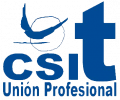MOBILEurope: Collective bargaining for mobile workers in Europe under the COVID19 – cases of frontier, seasonal and migrant workers
Meeting with researchers, 25.10.23 Belgrade
The meeting began with a welcome address and introductions of the attending partners. The discussion focused on national desktop analyses and preliminary survey results. It was highlighted that foreign workers are significantly present in sectors like hospitality and agriculture, facing challenges such as long working hours, lack of decent conditions, and workplace accidents. Legal frameworks ensuring equal conditions for migrants and structured social dialogue systems were also discussed, along with survey issues like repetitive items and lack of sector-specific data.
Several countries reported low immigration rates and employment without contracts, emphasizing the need for agricultural workers and challenges in sectors such as construction, hospitality, and health due to worker emigration. Legal frameworks and collective bargaining limitations were common concerns. Similarities in worker emigration and labor market challenges were noted, along with legal gaps for foreign workers and ongoing negotiations for comprehensive collective agreements. Survey challenges included low response rates and language barriers.
Significant immigration, especially on the islands, was noted in some regions, discussing challenges like lack of contracts and social security coverage for migrants. The effects of COVID-19 on labor rights and mobility were highlighted. Positive social perception of immigrants and economic migration were discussed, addressing legal rights and qualification recognition challenges, as well as issues like housing overcrowding and lack of social insurance post-COVID-19. Increased immigration from Ukraine and the geopolitical context were also discussed, highlighting challenges in data collection and survey representation, and the formation of a union for Ukrainian workers.
A debate followed, discussing common issues such as survey length, non-representative samples, and lack of previous studies, while highlighting differences between countries and challenges in comparison due to varying legal and social contexts. Plans for Focus Group Interviews with mobile workers, union representatives, employers, and officials were detailed, agreeing on methodology and flexibility in interview methods.
Agreements were made for two interview blocks (union leaders/members and employers/institutions), flexibility in interview methods, and a timeline for submitting suggestions and finalizing the questionnaire. The meeting concluded with a collaborative effort to address the complexities of collective bargaining for mobile workers in Europe under COVID-19.


